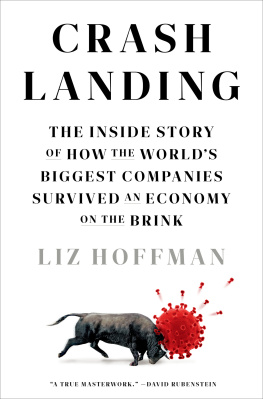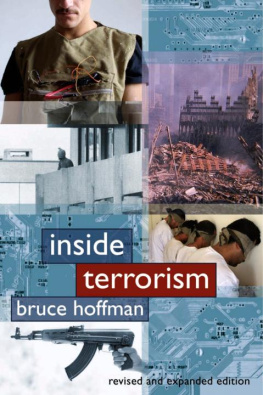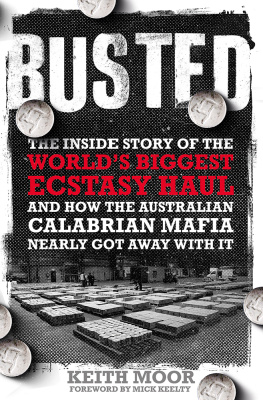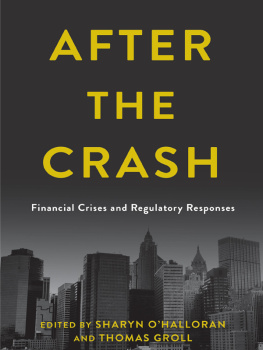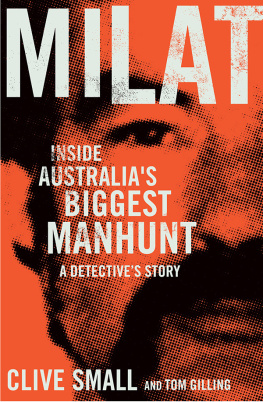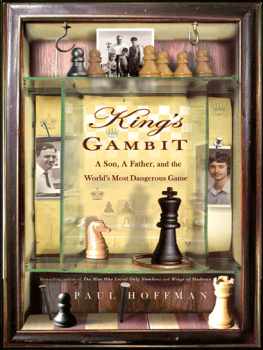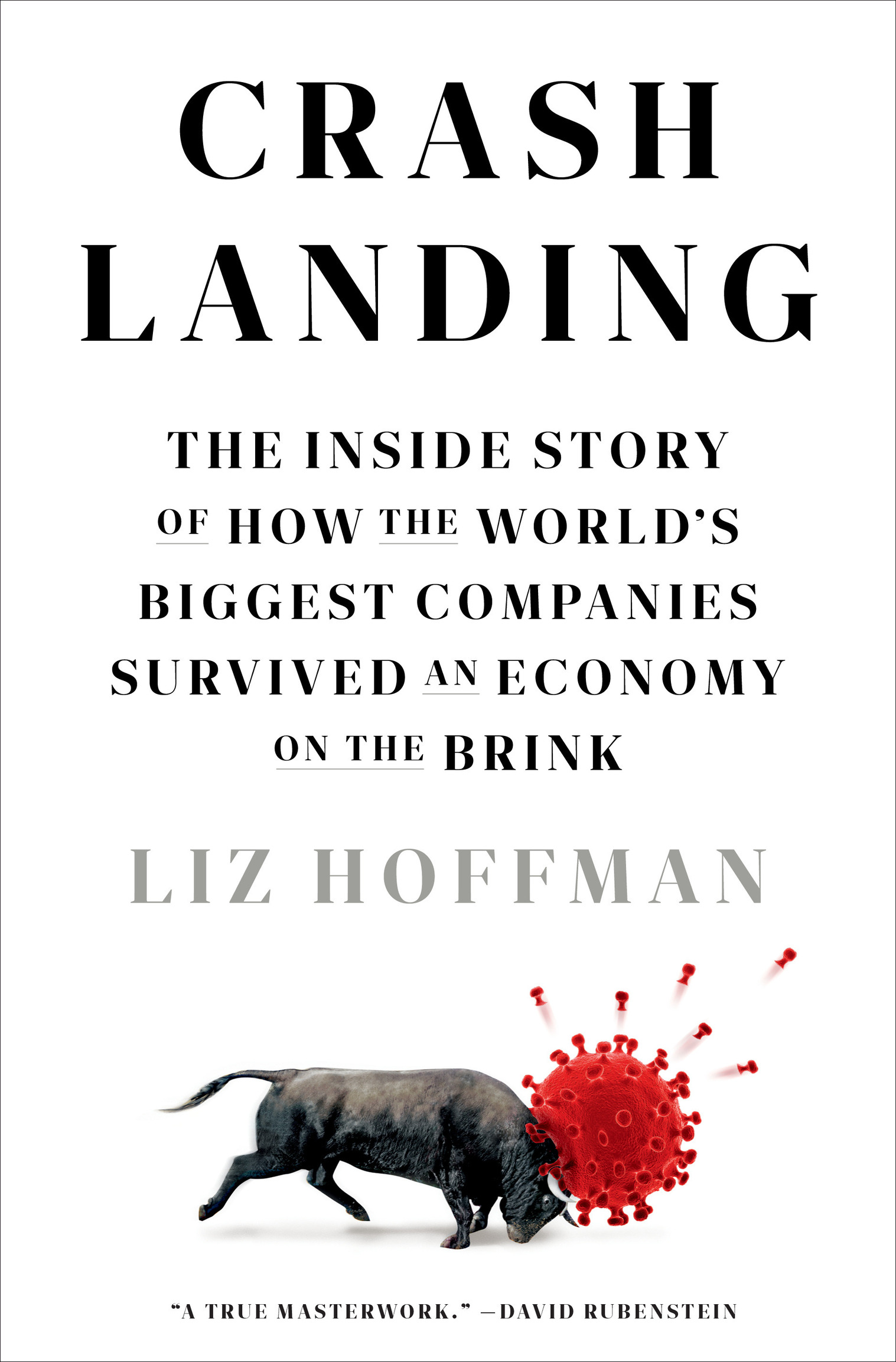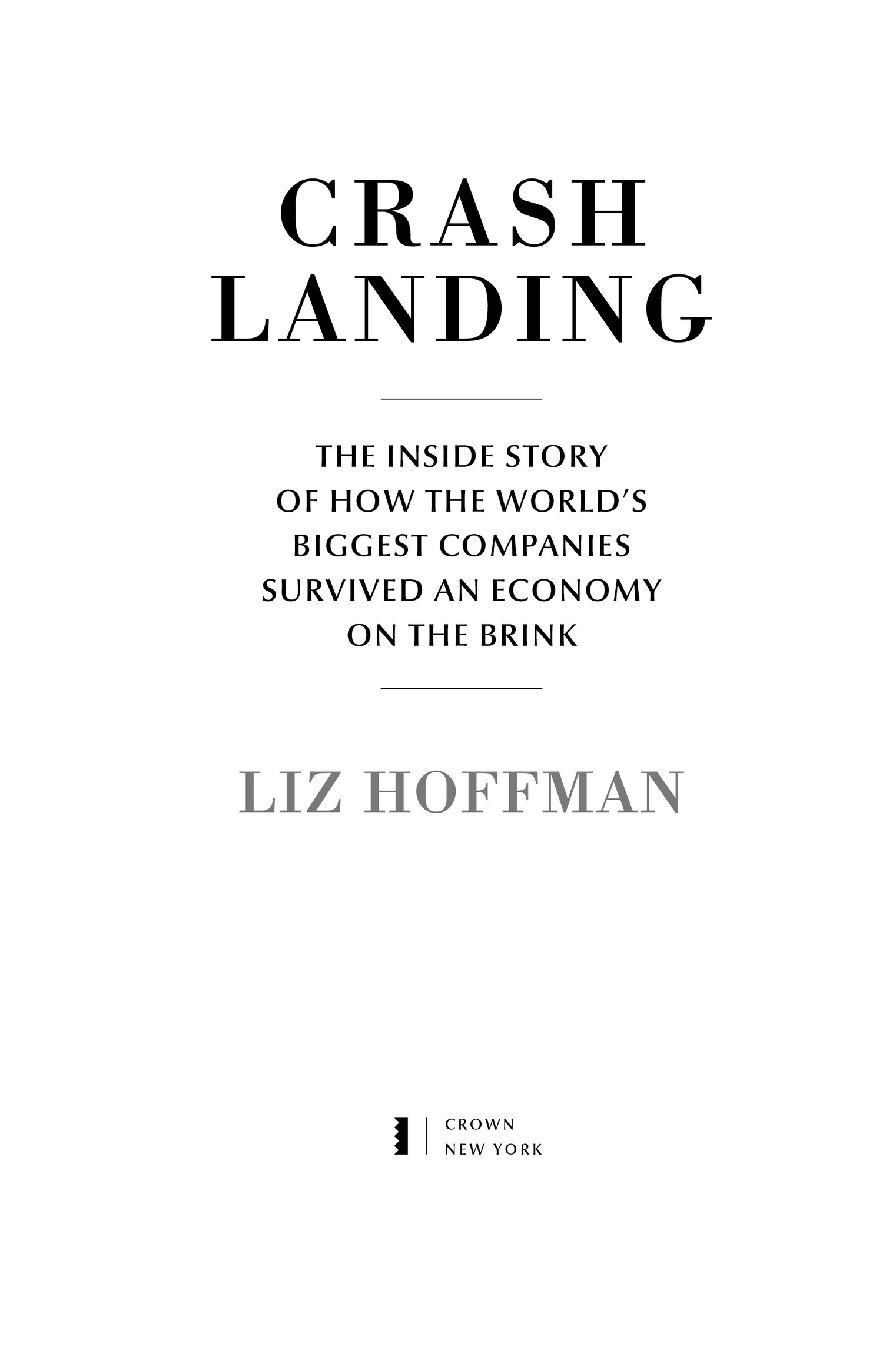Contents
Landmarks
Print Page List
Copyright 2023 by Liz Hoffman
All rights reserved.
Published in the United States by Crown, an imprint of Random House, a division of Penguin Random House LLC, New York.
Crown and the Crown colophon are registered trademarks of Penguin Random House LLC.
Library of Congress Cataloging-in-Publication Data
Names: Hoffman, Liz (Wall Street Journal reporter), author.
Title: Crash landing / Liz Hoffman.
Identifiers: LCCN 2022039607 (print) | LCCN 2022039608 (ebook) | ISBN 9780593239018 (hardcover) | ISBN 9780593443538 | ISBN 9780593239025 (ebook)
Subjects: LCSH: United StatesEconomic conditions21st century. | COVID19 (Disease)Economic aspectsUnited States.
Classification: LCC HC106.84 .H64 2023 (print) | LCC HC106.84 (ebook) | DDC 330.973dc23/eng/20221020
LC record available at https://lccn.loc.gov/2022039607
LC ebook record available at https://lccn.loc.gov/2022039608
Ebook ISBN9780593239025
International edition ISBN9780593443538
crownpublishing.com
Book design by Victoria Wong, adapted for ebook
Cover design: Evan Gaffney
Cover image: Eoneren/Getty Images
ep_prh_6.0_142781534_c0_r0
Contents
_142781534_
God shield our Empire from the might
Of war or famine, plague or blight
And all the power of hell,
And keep it ever in the hands
Of those who fought gainst other lands,
Who fought and conquered well.
Winston Churchill, 1890
I dont think were ever going to lose money again.
Doug Parker , American Airlines CEO, 2017
AUTHORS NOTE
On a cold, sunny Friday morning in late March 2020, I sat on my Brooklyn stoop, bathed in an eerie silence, and checked my email. It was the third week of the coronavirus pandemic and New York City was shut down. My then-employer, The Wall Street Journal, had closed down two weeks earlier along with the rest of the city, and I had taken to having my morning coffee outside, in what seemed both a thrilling change of pace and a quiet act of corporate rebellion. Atop my inbox was an email from one of my editors at the paper with the subject line Ides of March.
My beat at the Journal was Wall Streetthe flow of money among big banks, giant corporations, and the investors behind them. I had spent the previous few weeks writing about the viruss toll on financial markets, which after a decade of smooth sailing had now utterly freaked out. But the impact had spiraled well beyond trigger-happy traders. The virus that would come to be known simply as Covid had killed hundreds and sickened thousands. Nobody was buying anything. Massive layoffs were being announced every day. It was a seismic event for the global economy, with impacts spiraling out in every direction. The task from my editor that morning was to try to capture the moment and its complexity. The resulting story, published on the first Saturday of April, was an eight-thousand-word chronicle of March 2020, the month the world shut down. It told the stories of two dozen corporate executives and investors as they faced the biggest challenge of their careers.
What became clear, in one interview after another, was that the economic elite was just as stunned as the rest of us. For most of them, the past decade had been a glide pathand for me, too. I became a financial reporter at the beginning of that decade, in 2011, at the start of what turned out to be a remarkably dull and benign stretch for the economy. Stocks went up. Debt was cheap. Corporate profits climbed to new records. Nobody on Wall Street trading floors lost an embarrassing amount of money, or at least not in a fashion that lent itself to rollicking stories in the newspaper. I wrote about a merger boom and chronicled the banking industrys return to profitability after the 2008 meltdown. It was fun enough, and I learned a lot. But I sometimes found myself a little jealous of predecessors who had established themselves in the thick of reporting on past crises.
And now suddenly one had arrived.
It didnt feel like it at first, of course. The onset of the coronavirus pandemic in the early months of 2020 had no parallel in recent history. And then, suddenly, it was the only thing that mattered. In writing this book I aimed to capture that slowly-then-all-at-once feeling, exploring the decisions that the chief executives of some of the worlds biggest companies were making through a lens that was changing by the hour.
Most of us dont run giant companies, but almost everyone can remember the uneasiness of March 2020, when things were fine until they werent, until the springs that held our daily lives together suddenly sprang loose. I vividly remember sitting, maskless, on a flight from Tampa to New York on March 8, returning from a family vacation to a Gulf island that we had joked a week earlier about canceling, and wiping down the airplane armrests with hand wipes pilfered from Chick-fil-A. Three days later, I left the Journals office in midtown Manhattan. I would not be back for almost two years.
In the days that followed, we would all make monumental decisions, quickly and with information that was imperfect at best, about how to live in this new world. Some of these decisions proved silly in retrospectI bought a pulse oximeter, though not a Pelotonbut some would profoundly affect the course of our lives. We moved; we quit our jobs; we decided to write a book. Three years on, we are now living with those decisions and the unexpected consequences.
This book grew out of my early reporting on the immediate economic carnage of the pandemic. It began as an attempt to chronicle the extraordinary economic events that occurred as the pandemic froze the nations economy. I wanted to understand what it was like to be in the drivers seat of the worlds biggest and most influential companies, firms where leaders were used to talking about strategy in quarters, if not years, and be forced to make decisions on the flydecisions on which a companys very survival might hinge. Who were the losersand were there some surprising winners?
To answer these questions, I set out to find the most compelling corporate stories I could, ones that captured different kinds of companies and their leadersWall Street financiers, Midwest manufacturers, a Silicon Valley travel upstart and a legacy company it was trying to disrupt, and an airline industry brought to the brink of collapse, begging the government to save it.
I began this project not knowing whether these companies and the economy they stood astride would survive, or how their businesses might be reshaped. Like so many things during the pandemic, my project in time began to take on new dimensions. As the months went by, I realized that I wanted this book to be more than just an account of the greatest black swan event in contemporary economic history. I wanted to use the backdrop of this moment to explore the job of a modern CEOand how it would be changed by this crisis and the grief, social unrest, and general anxiety it fomented. On paper, the corporate hierarchy in 2023 might resemble that of 2019, but the job has taken on new dimensions. CEOs stepped into the leadership void left by the Trump administration, whose dithering and optics-obsessed response to the crisis cost thousands of lives. That, coupled with the perceived politicization and flip-flopping of public health agencies, eroded millions of Americans faith in institutions; many looked to their employers for steady leadership. The furor over masks and vaccines put CEOs in the political hot seat, forced to choose between adopting federal guidelines and alienating a portion of their employees and customers.

